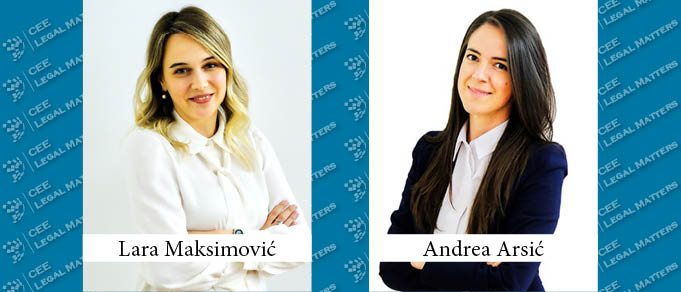Starting from March 23, 2022, Serbian Business Registers Agency (“the SBRA”) has allowed the use of electronic signature in cloud in the Special Information System for drafting and submission of financial statements.
The respective qualified electronic certificate in cloud is issued free of charge by the Office for IT and eGovernment, while its Portal for Electronic Identification provides the information and instructions regarding the activation of relevant mobile application (ConsentID) and qualified electronic certificate in cloud, as well as the procedures for signing documents in such manner.
According to the notice published on the SBRA’s website, in the upcoming period the SBRA will enable the use of qualified electronic certificate in cloud in other applications available on its website too, as well as the use of qualified electronic certificates in clouds issued by other issuers from the Register of Qualified Trust Service Providers.
What is a qualified electronic signature?
The Law on Electronic Document, Electronic Identification and Trust Services in Electronic Operations (Official Gazette of RS no. 94/2017 and 52/2021) (“the Law”) defines the qualified electronic signature as advanced electronic signature made by qualified tools for electronic signature creation, which is based on qualified certificate for electronic signature issued by the provider of qualified trust service in accordance with this law.
Accordingly, qualified electronic signature is a set of electronic data used for establishing true identity and authenticity of a person signing the documents, establishing validity of the signed data, and ensuring their protection during transfer. In other words, qualified electronic signature is what gives validity to the document, considering that it has equal legal effect as personal signature (on paper).
Electronic signature is being “qualified” because it is issued by the certification authority competent for its release (such as the Serbian Chamber of Commerce, Ministry of Interior of the Republic of Serbia, PE “Poste Srbije” etc.).
Therefore, qualified electronic signature has a wide scope of application – in daily operation (e.g., for concluding contracts, authorising bank transactions, making invoices etc.), as well as in different procedures before competent authorities (e.g., under the decision of the Court of Appeals of Niš Gz no. 1664/20 as of September 16, 2020, an appeal filed by authorised attorney in electronic form, which is not signed by qualified electronic certificate, shall be deemed incomplete as it does not include all significant elements, i.e., signature of the applicant, therefore it shall be rejected). Exceptionally, under Article 50, paragraph 5. of the Law, agreements and other legal transactions that need to be made in the form of signature certification according to a special law, publicly certified (solemnized) documents or in the form of public notary document, cannot be signed by electronic signature or qualified electronic signature, but in accordance with regulations on signature certification, verification and creating of documents on legal transactions.
Distinguishing between qualified and “regular” electronic signature
Qualified electronic signature should be distinguished from “regular” electronic signature which, under the Law, represents a set of data in electronic form that are associated or logically connected with other (signed) data in electronic form, so that electronic signature certifies the integrity of such data and identity of the signer.
The main difference between qualified and “regular” electronic signature is reflected in their legal effect. Namely, non-qualified electronic signature can have legal effect and thus it can be used as evidence when regulations do not stipulate an obligation to have a written document. Accordingly, for instance, it cannot be used for legally valid conclusion of real estate purchase agreements.
In other words, electronic signature can be used in situations which entail the signing of documents that do not need to be made in written form in order to be valid under the law. Also, it may be used for signing internal and company documents of minor importance, i.e., which would be legally valid and/or binding even if done solely in oral form, in which case written form would only represent a proof of their content.
By Lara Maksimovic, Senior Associate, and Andrea Arsic, Associate, PR Legal



